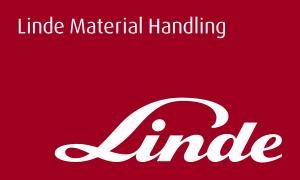Field Trial of E-LOG-Biofleet Launched
Austrian Federal Minister Bures puts logistics vehicle with fuel cell hybrid drive as well as Europe’s first indoor hydrogen refuelling station into service
With the delivery of the first of a total of ten pallet trucks with fuel cell hybrid drive to project partner DB Schenker and the commissioning of the first indoor hydrogen refuelling facility in Europe, the project partners Linde Material Handling, Fronius International, DB Schenker, OMV, HyCentA Research and JOANNEUM RESEARCH today officially started the field phase of their “E-LOG Biofleet” research project, first presented in 2011. The starting signal was given by the Austrian Federal Minister for Transport, Innovation and Technology, Doris Bures. Her department finances the programme of the Climate and Energy Fund that makes resources available to subsidise the project.
The project partners with Federal Minister Doris Bures (from left to right): Dr. Manfred Klell, Managing Director HyCentA Research, Kurt Leidinger, CEO Schenker & Co AG, Mag. Elisabeth Engelbrechtsmüller-Strauß, Managing Director Fronius International, Dr. Ralf Dingeldein, Vice President New Trucks Linde Material Handling, Doris Bures, Federal Minister for Transport, Innovation and Technology, Dr. Gerhard Roiss, General Director OMV AG, Martin Beermann, Research Manager Hydrogen Technologies, Johanneum Research.
“Since 2009 we have been promoting promising projects that lead technical innovations towards the market as part of our ‘Electromobility’s Technical Beacons’ programme. I am especially pleased to witness the first pilot trial starting within an industrial company with the E-LOG-Biofleet,” said Federal Minister Doris Bures. Fronius and Linde Material Handling had presented a truck with fuel cell drive at the 2011 CeMAT tradeshow. With DB Schenker as a project customer testing the suitability of fuel cell hybrid drive and OMV as a supplier of the hydrogen infrastructure, the research project team took up work the very same year. HyCentA and JOANNEUM RESEARCH accompany the project with the assessment of environmental compatibility, technical and economic analyses as well as in terms of project management.
The goal of the project is to increase the productivity of battery-powered forklift trucks and warehouse equipment, which up to now is limited due to time involved in recharging and changing the battery, the battery’s limited service life and high maintenance costs. The solution is based on the HyLOG Fleet system from Fronius, which replaces the battery and was developed for use in warehouse equipment in collaboration with Linde Material Handling. It comprises a PEM fuel cell as a range extender, a lithium-ion rechargeable battery and a 200-bar hydrogen pressure tank. The package offers a continuous power rating of 2.6 kW and a short-term peak output of 11 kW.
DB Schenker’s location in Linz offered to undertake the trial use of the vehicles during regular operations. All preparations were made there to test and verify their suitability for everyday use. The field test is possible thanks to an indoor refuelling facility which was developed by OMV and is unique in Europe to date. The facility was converted for indoor use and provides a maximum filling pressure of 350 bars. The adjacent on-site hydrogen production reforms methane from biogas into hydrogen. The use of this renewable energy source ensures the positive environmental balance of the overall solution. The remaining nine pallet trucks of the test fleet will be delivered during the course of the next few months; the field phase is scheduled to span over one year. During this time the system’s technological maturity and its advantages in terms of productivity and ecology will be verified.
Quotes from the project partners
“The experience gained with the HyLOG feasibility study has clearly shown the advantages offered by fuel cells – short refuelling times and avoidance of battery changes. We consider the fuel cell to be the technology of the future in intralogistics.” Ewald Wahlmüller, Project Manager, Fronius International
“We are pleased to support the project as a coordinator and technical advisor and to have designed a regenerative solution for the entire chain, from production and storage all the way through to the use of the hydrogen in the fuel cell.” Manfred Klell, Managing Director, HyCentA Research
“The use of hydrogen from biogas is very sustainable: a variety of renewable, locally available and decentralised processed raw materials and biogenic residues can be used.” Martin Beermann, Research Manager Hydrogen Technologies, JOANNEUM RESEARCH
“The use of new technologies and sustainable energy sources is an integral part of our strategy. The fuel cell and thus the E-LOG Biofleet project play an important role in this context.” Ralf Dingeldein, Head of Sales Division New Trucks, Linde Material Handling
“Hydrogen is a major contribution to the future of mobility and therefore plays an important role for OMV. The fact that this new technology can also be used in logistics commercial vehicles demonstrates just how broad the field of application for hydrogen really is.” Gerhard Roiss, General Director, OMV AG
“For us it is a big concern to minimize the environmental impact of our operations. For example, we are already using solar systems and heat exchange pumps at many sites. This field trial is another important project of our environmental programme.” Kurt Leidinger, CEO Schenker & Co. AGThe first of ten Linde T20 pallet trucks with fuel cell hybrid drive delivered to project partner DB Schenker in operation.

